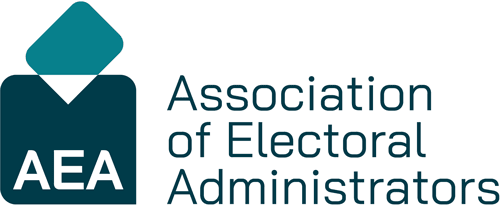AEA 2023 post polls report published
Unsystematic change to the UK electoral system is raising the risk of major problems at the next general election. That’s the verdict of our 2023 post polls report.
Under pressure: increased demand on the UK electoral system expresses our concern that only a major electoral failure will focus attention on the electoral system’s vulnerabilities.
The report reflects on delivery of the 4 May 2023 local elections – including voter ID – and examines the imminent second tranche of Election Act 2022 changes.
Launching the report, AEA chief executive Peter Stanyon said: “Stacking significant changes on endemic issues is increasing risk for all elections, but especially a high turnout general election.”
Incoming changes include extending votes at general elections to all British citizens living overseas, online postal and proxy vote applications, new parliamentary constituency boundaries and the return of truly ‘snap’ general elections.
Ongoing problems include increasing difficulties finding venues and staff for polling stations, postal vote delivery issues and diminishing resources at local authority level.
AEA chair Neil Middlehurst added: “Running polls is more complicated than ever across the UK. Our members know first-hand how policy and legislation works in practice, and their insight has been vital for this report.”
Suggesting ways to improve the electoral system for voters, candidates, and electoral administrators alike, the report makes five major recommendations:
- An independent Royal or Parliamentary Commission review of core electoral delivery processes.
- Reconsidering how elections are delivered, including centralised voting hubs and greater use of technology in polling stations.
- All GB governments to consider the impact legislative divergence has on the complexity of taking part in and running elections.
- UK Government to critically assess the risk of electoral suppliers, including Royal Mail, failing to deliver ahead of a national poll.
- The Electoral Commission to consider how it advocates for and supports capacity and resilience in local authority electoral teams and engages Returning Officers and Electoral Registration Officers.
These supplement five ongoing recommendations from our 2021 Blueprint for a Modern Electoral Landscape:
- A single Electoral Administration Act reflecting the diverging approach to elections of all four UK nations.
- An extended 30-day electoral timetable for all polls – up from 25 days – including for UK Parliamentary general elections.
- Earlier deadlines for absent voting applications to meet voters’ needs, including those living overseas.
- Absent voting arrangements fit for the 21st century, including the option to apply for an absent vote using official online platforms.
- A full review of electoral funding to reduce the burden on council budgets.
